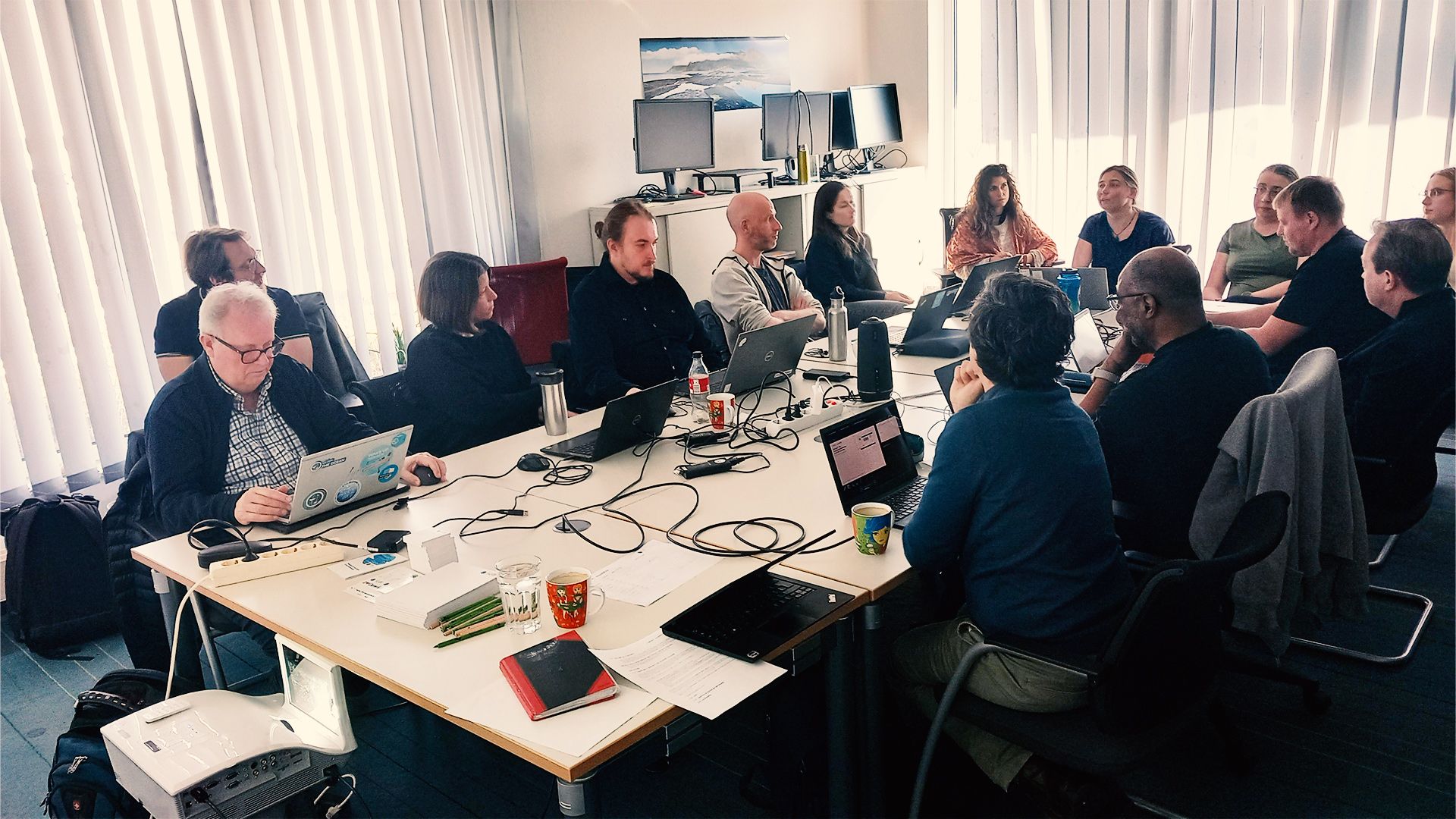AquaINFRA News
AquaINFRA Workshop Report – Berlin
March 24th, 2025

The AquaINFRA consortium gathered in Berlin from March 20th - 21st, for a focused two-day workshop. With participants from across Europe and a shared goal of progressing key infrastructure and data management tasks, the meeting provided an opportunity for hands-on collaboration—without relying on slides. This “slideless” approach encouraged open discussion and practical decision-making, in the spirit of moving the project from planning to implementation.
The workshop began on Thursday morning with technical discussions centred on the AquaINFRA data lake and the processes surrounding data ingestion, licensing, and metadata. One major topic was the status and usability of the project’s most important datasets, including those with socioeconomic relevance. Many of the datasets currently available through providers lack clear licensing, making reuse difficult or impossible. Resolving this issue will be critical for enabling open science and ensuring long-term value.
Another key focus was metadata—specifically what standards should be used, who is responsible for creating and maintaining it, and how it should be integrated into the infrastructure. The idea of adopting INSPIRE-compliant metadata as a starting point was well received. Participants also addressed the current data ingestion procedures into ALLAS, CSC's general purpose research data storage server, noting that clearer guidelines and best practices are needed to ensure that use case teams can easily understand and work with the data.
In the afternoon, the group shifted focus to the bigger picture—looking at what AquaINFRA is expected to deliver by the end of the project, how those outcomes will be used, and who will maintain key infrastructure components such as the data lake, DDAS, AIP, and Galaxy workflows once the funded phase ends. These are not just technical concerns; they also touch on governance, funding, and long-term sustainability.
The day ended with a well-earned dinner at a local restaurant in Adlershof, giving everyone a chance to relax and continue discussions informally.
On Friday, attention turned to integration with the European Open Science Cloud (EOSC). The aim of the session was to identify which EOSC core services are already available and ready to be incorporated into AquaINFRA. Rather than discussing future developments, the group focused on what can be used today and what practical steps are needed to make that integration happen.
This involved detailed conversations around service readiness, the technical value of each service, and what actions AquaINFRA developers would need to take to adopt them. Questions included what protocols, APIs, or technical specifications are required, and what support might be needed from EOSC, such as access to the Innovation Sandbox.
The workshop wrapped up on Friday afternoon, following an open discussion that allowed space to reflect on the outcomes, surface any unresolved questions, and identify immediate next steps.
While there is still work ahead, the meeting represented a clear step forward. Through in-person collaboration, technical clarity, and a shared commitment to open infrastructure, the AquaINFRA team has made strong progress toward building a more connected, usable, and sustainable digital environment for aquatic research.

